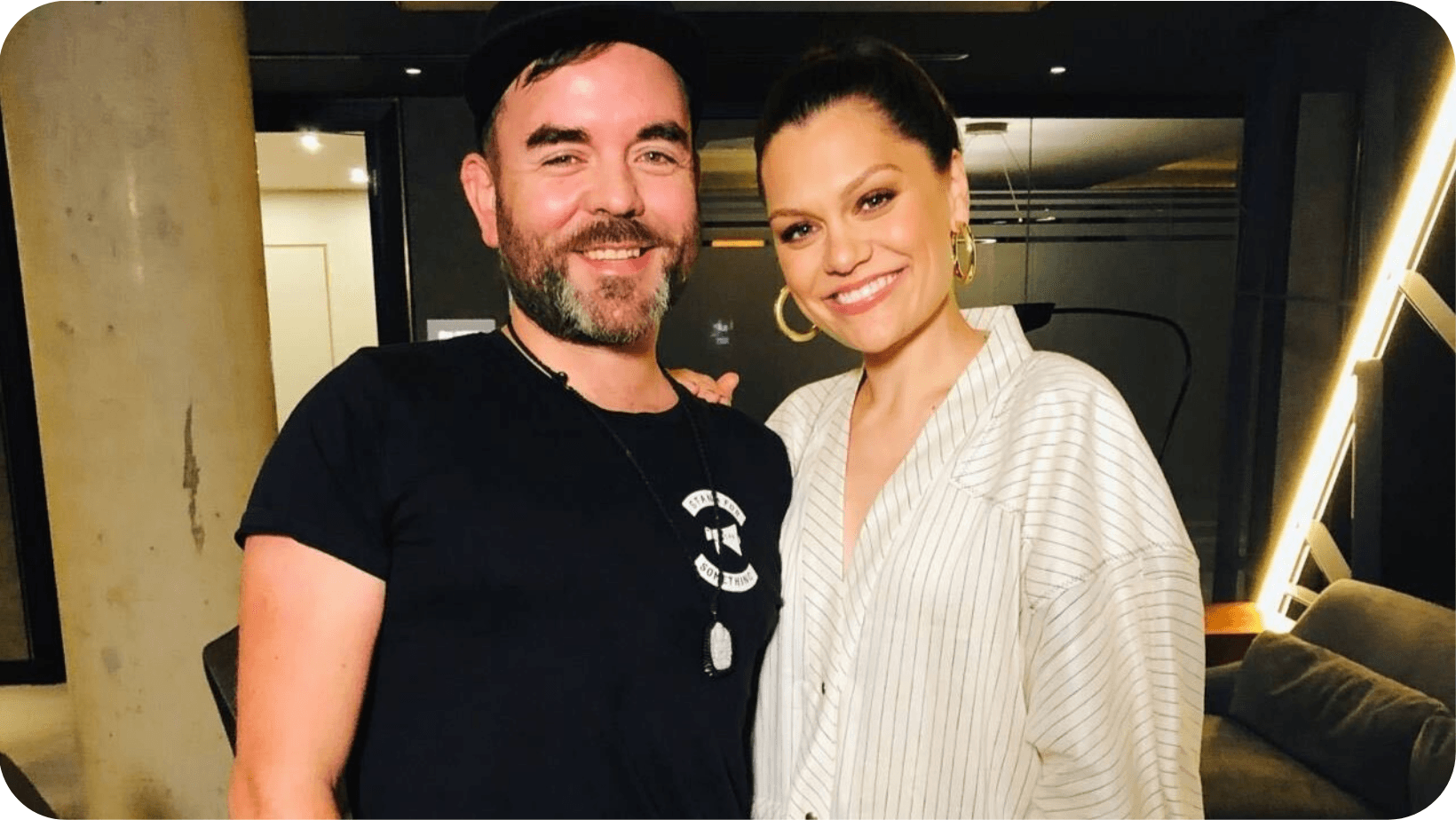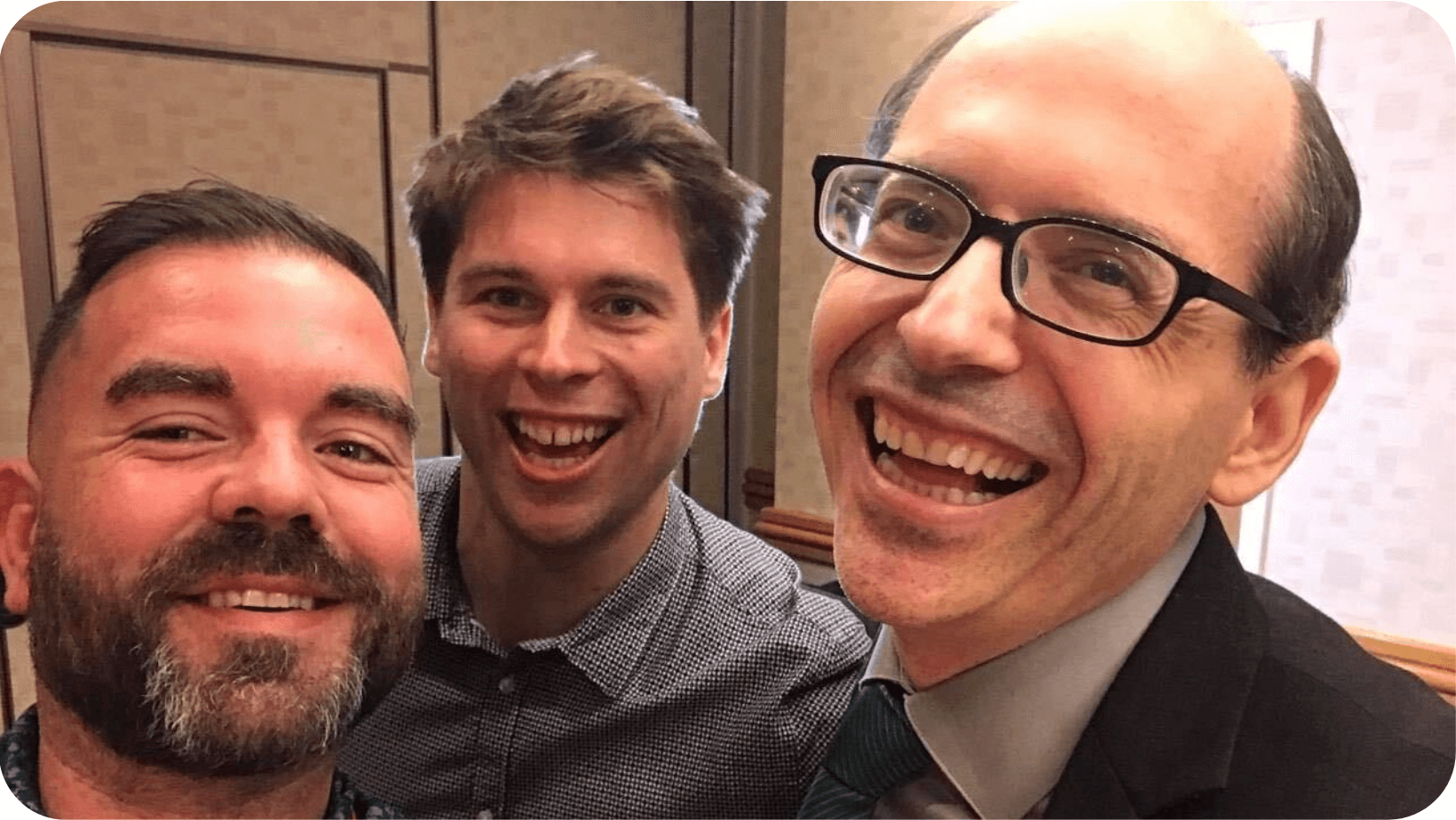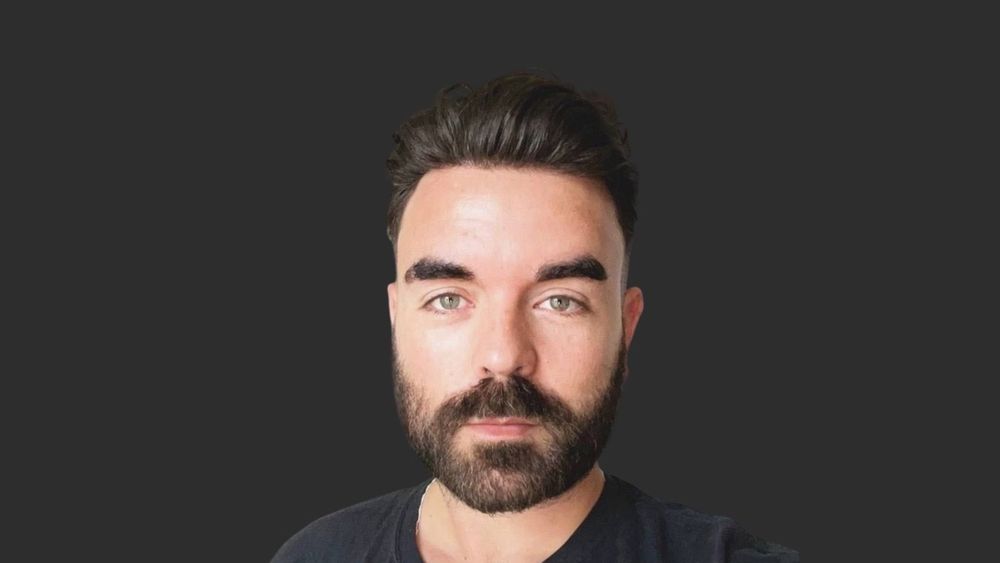Robbie Lockie on what is important and inspirational to them
In case you have been hiding under a rock for the past few years Robbie Lockie is Cofounder & Board Member of Plant Based News. Robbie was kind enough to sit down with us and share their inspirations, aspirations, and everything in between.
V-Land UK (V-L): What inspired you and Klaus to set up Plant Based News?
RL: What inspired us to set up Plant Based News was the idea that there were not enough people talking about the power of a plant-based diet to help people transform their health; and also really just to talk about the horrors of animal agriculture, we noticed in the mainstream media there wasn’t enough discussion around the damage that animal agriculture is having on the planet.
The environment is discussed a lot on platforms such as The Guardian and they have done a very good job highlighting this over the years. But we felt that there really needed to be a voice for the movement.
We started it eight years ago on social media and seven years ago as a platform and official organisation.
V-L: Your LinkedIn describes you as ‘Ethical Media Director’ of Plant Based News, how do you embody this role and what does ethical mean to you?
RL: Ethical to me means taking responsibility for what we create and it’s all about transparency as well. Always being very clear about when we are being paid to advertise is something that’s a really good example of ethics to me.
The core of my work and the reason I get out of bed every morning is to focus on the ethics of our work which is to educate, inform, inspire, entertain and enlighten people about the damage that animal agriculture is having and to try and inspire ethics in others. My focus is to shine a light on the unethical aspects of the media, animal agriculture and factory farming.
V-L: You interview a plethora of guests on The Plant Based News Podcast, what have been the ones that have challenged - and potentially changed - your perspective the most?
RL: My interview with Jessie J was amazing. Celebrities can be seen as people who are a little clueless about the core meaning of veganism and why it exists. However, Jessie spoke very clearly about why veganism mattered and it really changed my perspective on celebrities’ awareness of veganism.
Episode #81 of The Plant Based News Podcast featured Dr Vincent Walsh. He is an incredible man, he spoke a lot about the power of mushrooms which was enlightening, inspiring and fascinating: it has set me on a path of discovery about mycelium and mushrooms. He’s an academic and founder of the ecological food company Herblabism, he was teaching me about how many types of mushrooms are able to convert waste. Coffee grounds produce a huge amount of environmental waste and greenhouse gases, but, you can take one tonne of coffee grounds and a certain type of mushroom can be fed to them which converts them pound per pound to waste. I wish more organisations had a philosophy that whatever byproducts are produced need to be turned into something else and rescued in our environment.
These kinds of interviews give me hope for the future and highlights that there are so many wonderful solutions for us to live in a sustainable way.

Robbie Lockie
V-L: Do you feel most comfortable and passionate working in longer-form media? Do you think the rise of the podcast will continue?
RL: I do prefer longer-form media. I like meaningful conversations, nuance and in-depth discussions. I’m not a massive fan of the short-form content revolution. Social networks are pushing shorter and shorter content. How soon until we will be at three-second content?
Somehow you’re meant to get across all these important subjects and it’s tiring because the algorithms favour this type of content. It can be so meaningless and pointless. That being said, there are some great pieces of content which have meaning: one of my close friends, Sam Bentley, the ex Co-Founder of UNILAD has a fantastic Instagram account which I highly recommend, that showcases how to communicate great information in 90 seconds. The content is about positive news and things going on in the world. So it can be done, it just requires a lot of skill and excellent copyrighting.
V-L: What inspires you?
RL: People’s tenacity and courage to keep focused on what we are doing as a movement and not be enticed into the corporate world where there is more money as there isn’t much in vegan media or activism. I know most people involved in the movement such as Earthling Ed and Joey Carbstrong, and every bit of every penny those people receive they use very carefully. I’m always inspired by those sorts of people because they work tirelessly to optimise everything and use any funding they receive to create campaigns and films to educate, entertain, inspire and inform. What inspires me as far as our work is being around so many different people who are constantly working for the animals and planet, it’s more about their actions than their words: this inspires me and gives me hope - every day.
V-L: Something you may be lesser-known for is as a co-owner of Positive News; what spurred you to get involved with this?
RL: Shawna Crockett Barrows founded Positive News in 1993, sadly she’s no longer with us. It was a newspaper created to focus on the power of constructive journalism. Journalism is about who, what, when, where, and why - this is generally what articles tend to be based on. Constructive journalism then adds the final dimension of and then what next? What’s the solution?
It’s a beautiful quarterly magazine, that charts these stories and gives you hope for the future. My involvement as a co-owner along with a whole bunch of other people, I have been involved for nine years. I encourage people to sign up and support it. It’s really about trying to break bad news habits and encouraging individuals to enjoy content offline, rather than being glued to their phones. We live in a world where bad news is continuously pushed on us from every angle. And there’s minimal opportunity for positive or good news. My good friend Sean Dagan Wood is the Editor-in-Chief and his wife Lucy is the Editor, they’re amazing people.
V-L: Klaus stated that you are “extremely patient, something I don’t have” - do you view yourself in this light and if so, is this something you have always possessed or have you had to cultivate it?
RL: Patience is definitely something I have had to cultivate. There are times I can be very impatient and others when I am able to maintain it because I know it’s important for me. Patience comes from mastering one’s mind when it comes to a situation. It can be very easy to jump to anger or frustration when interacting with others. It’s something I work on all the time. We should choose our responses very carefully with people because it can be very hard to maintain positive dialogue. Patience is a vital component of successful relationships - especially for anyone who works with others or works in an organisation.
V-L: What is the most memorable moment of your involvement with Plant Based News?
RL: It is probably the trips to America with Klaus when we were driven across the New York State County talking to and interviewing leading doctors in the plant-based space (such as Dr. Esselstyn and Dr. Greger): these luminaries in the plant-based space have been advocating plant-based eating and veganism for over 30 years.

Robbie Lockie
V-L: What advice would you give to someone looking to start a business/service in the plant-based arena? And any pitfalls which could be avoided which you learned about the hard way?
RL: Do your market research, try to understand what’s out there already and really get under the skin of what others are doing and understand what may be missing from what they’re doing and go out and do what they’re doing a bit better. Be crystal clear in your mind about what you’re going to do which will be different and set yourself apart from others.
Innovation is important, it’s not good to merely copy: imitation can be a form of flattery, however we’ve had issues with others copying a lot of what we are doing; the movement needs diversity. It requires more people doing what we are doing but it needs different angles and offerings as otherwise you just get lots of repetition. That being said, competition breeds innovation.
V-L: What made you go vegan?
RL: It was initially for health reasons and then I discovered the ethical side of it. I watched Earthlings and other documentaries similar to it which showed how humans treat animals and the horrific treatment of farmed animals. I didn’t want to be a part of that. Funding that industry made no sense to me at all as a Buddhist.
I wear a necklace around my neck every day which has Quan Yin, the goddess of compassion, on it. She has 1000 arms and in each hand she holds an object of salvation. She is a symbol of the compassionate nature of human beings; we are blessed with compassion but we don’t always listen to it or use it. It can be quite painful sometimes when you see the suffering of others, you can feel their pain and it can it can be hard, but with those objects of salvation, which could be our knowledge, our intellect, our skill, we’re able to support and facilitate bringing an end to at least some of that suffering. It didn’t make any sense to me to be a Buddhist whilst eating animals. How could I be going out and talking about compassion, Ahimsa and non-violence while still eating animals that I didn’t need to? So I decided to stop.
V-L: On a lighter note: Have you always been more of a cat than a dog person?
RL: I’ve been a cat person since childhood. I’ve had a couple of cats who have been in my life: my first cat was called Honey Cat and my current one called Nala Cat, both beautiful animals and I’m absolutely obsessed with cats, unhealthily obsessed with cats! I’m usually completely covered in cat hair from head to toe. They’re very special animals to me.
V-L: Why is The Matrix your favourite film?
RL: I absolutely loved the film when I first watched it as a young person when I came to the UK in the late 90s. I was blown away by the idea that we are potentially imprisoned in something that we cannot see and that the world around us may not what be what it seems to be: I’ve felt this way since a child, that there’s something about our universe and reality that doesn’t seem right to me or seems off in some way.
I love the scene where they see this cat walk through a door and then a cat walks past again and Neo turns to Trinity and said, “What was that?” and she responded, “Oh, that’s a glitch in the matrix, which means something’s been changed”: when I experience déjà vu it feels as if something in the matrix has changed, something has shifted. I do believe that we live in a holographic universe, a projection - not necessarily an illusion because it feels very real, very solid - but I do think that our universe is a projection of our inner consciousness. It’s why I love the film because it really illustrates the concept that the world is not what it seems.
V-L: Is there anything else you would like to add?
RL: I identify as non-binary, my pronouns are they/them. It’s something that’s often not discussed or talked about, a lot of people are unaware of it. Our language is limited I think sometimes people have the attitude that, oh, you’re just an attention seeker. You just want to be different. We are all different. Every human being is different. Humans are a kind of cornucopia of variety and complexity, there’s a beauty in this. The problem is we put each other in boxes. My sex is male. I was born male and will always be male, but my gender identity is very different. I don’t feel like how I may be perceived from the outside - a masculine man with facial hair and things like that. However, if I could paint a picture of who I feel like on the inside, I would probably be a very tall, androgynous looking alien type. Probably with bright blue eyes and crazy hair. I don’t feel particularly masculine or feminime - simply androgynous. I feel very much like a blank slate but my gender expression doesn’t express that which I think is what confuses people.
The conversation about gender identity is novel in our modern society and it’s being policitised and used for political point scoring with transgender and non-binary people used as punch bags so for me it’s an important conversation. I don’t think there’s enough discussion in vegan spaces about the intersection between the oppression of animals and the oppression of human beings: people are imprisoned for their identity, for just being themselves and it is similar to how animals are treated. I want to see a world where human beings are free to be who they really want to be without fear of oppression and I want the same for animals.
We wholeheartedly agree with you Robbie. If you want to learn about more vegan trailblazers check out our interviews with Ed Winters and Alexis Gauthier.
